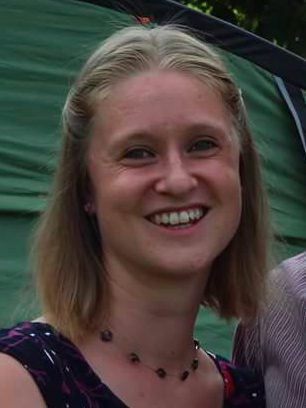
Jessica Carter (@JessoftheShire), primary school teacher and Mum of two, currently on maternity leave, explains how she has balanced her Masters with the Open University around her children and flexible working hours, and how the study has enriched her teaching and learning.
I’m currently part-way through a part-time MA in Childhood and Youth with the Open University. This will take three years in total (the recommended pace is 16 hours a week). The course is interdisciplinary and explores policy and practice in services for children and young people. I enrolled on the course after we moved back to the UK from overseas at the end of a teaching contract. I didn’t feel ready to be back in the classroom, but I wanted to continue my professional development: to keep my brain firing on all cylinders whilst I immersed myself in the work of being a mum.
It has always been a personal goal to work towards an MA, but it took time to find a course that really suited my interests and seemed worth the financial sacrifices. When I began, my daughter was eight months old. My husband was working full-time but we lucky to have the support of both sets of grandparents and, at one year old, some time at a local nursery. One term later I also felt able to take on a part-time teaching post alongside the study and mum-time.
In lots of ways it was the perfect balance for me: I benefited hugely from the flexibility of home study during my second pregnancy but, being a compartmentaliser, I struggled to fit study around newborn nap-times and toddler exuberance after the birth.
The wonderful, flexible Open University were able to grant me a postponement and, now that my son is five months old I am thoroughly enjoying engaging with my studies again, with the continuing support of my tutor.
When my husband and I first had The Conversation (who would take what amount of leave) we were surprised to find that the traditional two-week paternity/long maternity leave model seemed the best fit for us. He was incredibly supportive of my MA and career development plans, despite the huge dip in household income it would entail: I fully appreciate that this is not an option available to everyone. For these ‘baby years’ he feels strongly that his priority is family: he wants to be able to come home for dinner, bath and bedtime each night without bringing work with him. Ironically, during the last few years he has been promoted twice while I am back on the lowest rungs of the pay scale with no leadership responsibilities. Research into the ‘fatherhood bonus’ versus the ‘motherhood penalty’ in the workplace certainly mirrors our experiences so far.
So what do I hope to get out of it? As well as reigniting my passion for education the course has opened my eyes regarding government policy and the importance of integration between services for children and young people. There is a strong emphasis on reflection on personal practice: the things I am learning can and have been immediately applied in the classroom and staffroom. It also promotes the view of teachers as active researchers, encouraging me to explore my potential impact on the profession and the wider field of children’s services. I haven’t enjoyed the temporary loss of income but I believe there will be a longer term benefit on the trajectory of my career, in terms of both financial and personal development.